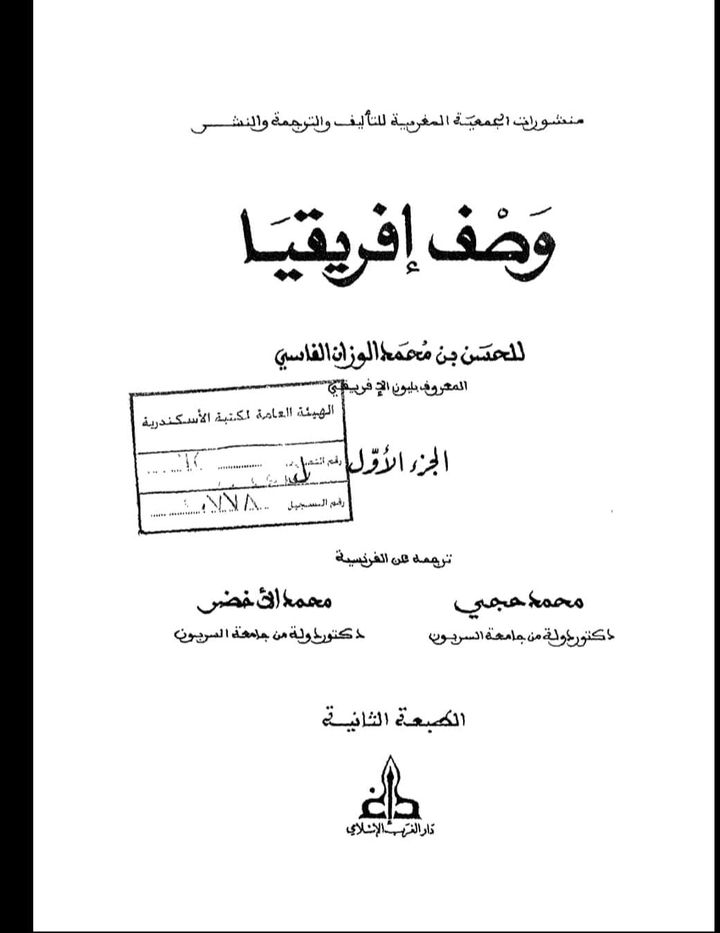The word Amazigh through historical references

The word Amazigh through historical references starting from 500 BC until now, an article specifically about the Mozarabized Amazigh who are skeptical about their origins.
The first historian to mention the word Amazigh was the Greek historian Herodotus, known as the father of increased history, in the year 480 BC. He called some of the Libyan tribes with the word Mazis, which is a distortion of the word Mazigh (a form of something prevalent when moving from one language to another. So, the Arabs changed the letter گma). )
For reference only, Herodite called all Berbers from western Egypt to Morocco the name Libyan or Libo
Source: Herodotus’ hadiths about the Libyans (the Arabic version is available for those who want to view it)

Likewise, almost the same name was adopted by the historian Syesius, Philistrog, and the Berber king Ptolemy, with a slight change, which is the word mazyx.
________________
We add to you something very important, which is what was stated in the book “Stephani Byzantii Ethnica by Stephen of Byzantium (6th century AD)”
"Étienne de Byzance, Stephane de Byzance or Stephanus Byzantinus"
The book is a dictionary of very ancient peoples, edited and commented by Margarethe Billerbeck, a Swiss linguist and graduate of the German University of Berlin. Where do we find the identity of the first European historian to mention the Berbers, attributed to “Mazigh” in the form “Mazyer” (Mazyes in other versions, especially Italian)? By whom we mean the Numidians who live in Libya (the old name for the whole of North Africa during the Greek era)

_
Now we will discuss some of the sources that were written in Amazigh using the Moroccan script.
Let us begin with the Berber jurist Abu Zakaria Yahya al-Yifrani (from the Ait Yafran/Bani Yafran tribe in Tunisia and Libya), the author of the book “The Book of Barbarianism,” which he wrote during the tenth century AD, and he says in a paragraph of his book (Ula Tsarginit Ajjul Ula Tamazight), meaning the same in Arabic, I swear. Or in Amazigh
What is noted here is that the word “Sarghina” is used in Arabic, and “Sarghani” is used in Arabic among the Amazighs, and it is derived from the word “Sarasna” which was used by the Syriacs and Byzantines to the Arabs.

Let us now consider another Moroccan Susi jurist and scholar named Muhammad O Ali Ozal (Muhammad bin Ali al-Hazzali), the author of the book Sea of Tears in Tamazight, which he wrote in the year 1749 AD and was translated into Arabic and French. The article is accompanied by pictures of books in which he mentions the word Imazighen.
He also wrote several other books in Amazigh, such as the book #Nasahat, meaning with the truth, and the book The Basin, but we will only suffice with the book Sea of Tears as an example.

_
We will now go through some European references that mention the word Amazigh
Let us now consider another Moroccan Susi jurist and scholar named Muhammad O Ali Ozal (Muhammad bin Ali al-Hazzali), the author of the book Sea of Tears in Tamazight, which he wrote in the year 1749 AD and was translated into Arabic and French. The article is accompanied by pictures of books in which he mentions the word Imazighen.
He also wrote several other books in Amazigh, such as the book Nashat, meaning the Truth, and the book The Basin, but we will only suffice with the book Sea of Tears as an example.

_
We will now go through some European references that mention the word Amazigh
In a dictionary or dictionary written in 1788 by Tukraf the linguist and the translator Pierre Amédée Jaubert, he mentions the phrase Amazigh or Mazigh, and its equivalent in translation is Berbére and libre Homme, the free man.
Source: Grammar of dictionary abrégés of the language published 1788 p. 33
_________________
Friedrich Engel wrote to his friend Karl Marx in 1857 describing Algeria, saying that it had the first inhabitants to have three names: Berbers, Kabyles, or Berbers, and it appeared in the original German version in the form MAZIGH.
Source: Karl Marx Friedrich Engels werke July 1857 - November 1860 p96

We also find the Spanish historian Murmul Carbajal mentioning the word Mazigh in several topics in his book (Africa), which he wrote in the year 1571.
We mention, for example, that when he describes the province of Tlemcen (Algeria), he says that the Africans are the ones who inhabit it, and he means the Amazighs, while he used to call the non-Amazighs the word Bedouins, and he says: (But the capital is now in the city of Algeria, which the Africans call Algeria Beni Mezghna), meaning that its people are from Amazigh
Source: Africa Book by Murmul Karbakhal, p. 27

